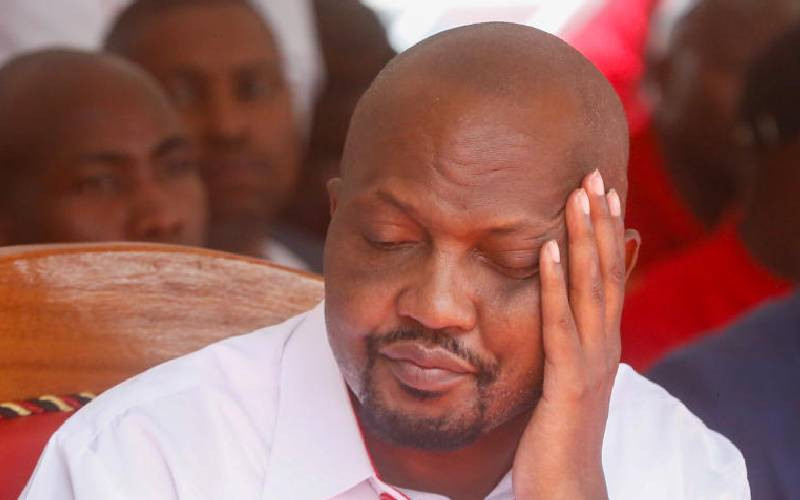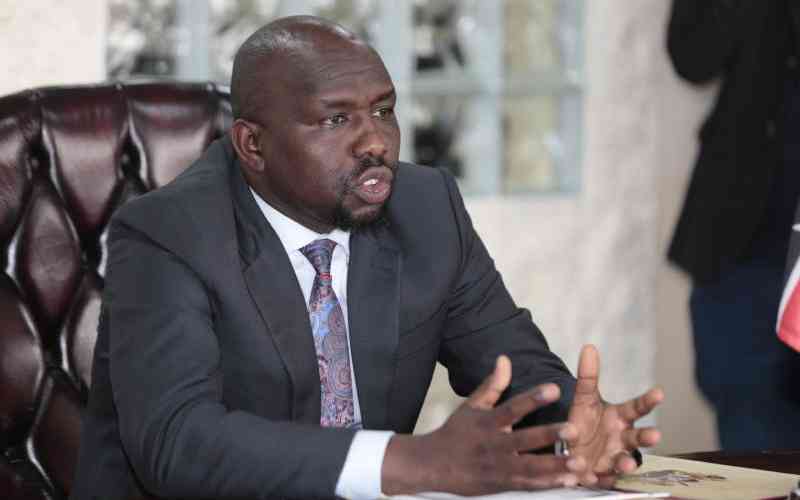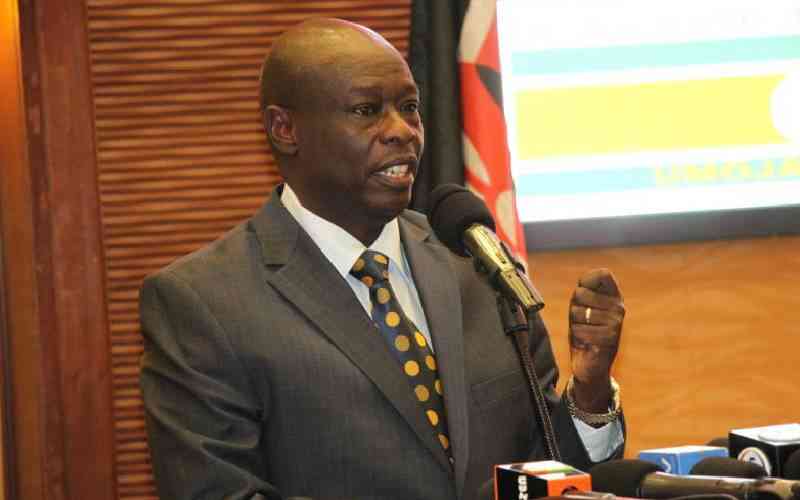The lack of parental guidance coupled with an overemphasis on material wealth and success has been blamed for a troubling wave of moral decay among the youth.
Education stakeholders on Wednesday said these issues are among the main factors that have pushed youth further away from core values such as integrity, empathy, and respect for others.
At a Nairobi session on Wednesday, the matter came up where stakeholders pushed for change to have younger Kenyans inculcate values in their view of the world.
Under the theme of ‘Cultivating lifelong character and holistic growth,’ teachers, religious leaders, the business community and political figures have been urged to come together in a bid to address the root causes of challenges threatening the moral fabric of the nation.
Vice President of Education, Global Peace Foundation International Tony Devine, said young people have faced a variety of challenges in an ever-changing society.
“How do we transform the educators themselves to become the model to cultivate the students of good morals who are growing holistically,” said Dr Devine adding, “The growth of technology, particularly social media, has introduced new pressures and distractions, while traditional values seem to be eroding.”
He noted that even with all the skills required to survive, without good character, no one will be willing to absorb them.
“With rising incidents of violence, substance abuse, bullying, and disrespect for authority in schools, the consequences are big and leaders need to restore ethics and values,” he said.
The Executive Principal at Crawford International School Ms Amanda Birkenstock said the workshop is a game changer in handling the new generation.
READ: Students urged to maintain high degree of discipline
“The transformation of the education forum is a platform to look at how we can change education to make sure that young students fit in today’s world. Do they have jobs change, are they ready for the real world outside,” she stated.
Ms Amanda argued that lack of parental guidance, coupled with an overemphasis on material wealth and success, has pushed youth further away from core values such as integrity, empathy, and respect for others.
“What can they do when they are in and out of school since they think it is all about money and technology but is more than that. We need to see a new way of handling this generation away from how we are used to,” she said.
Teachers have cited a drop in classroom discipline, rising truancy rates, and an increase in cheating and dishonesty among students.
While calling for more involvement in youth mentorship programs, religious leaders said the decay had infiltrated the youth culture and sweeping across the country.
Stay informed. Subscribe to our newsletter
Regional Representative for Africa, Global Peace, Canice Enyiaka, pointed to the weakening of family structures and the decline in spiritual guidance as key contributors to the problem.
“The power of character in Africa is the missing link, and in order to revitalise the region, we need to build ethical leadership; at our levels and education system, the family which are the components to build character,” he said.
He noted that faith plays an essential role in shaping the character of young people. “We need to go back to the root of our cultures, without spiritual grounding, many are left adrift in a world full of negative influences,” he said.
Dr Enyiaka pushed for stronger community-based mentorship programs with politicians backing legislative reforms that focus on youth well-being.
“Every generation faces challenges, but the ones we face today are unique. It is up to us collectively to ensure that we provide our youth with the tools they need to thrive, not just academically, but morally,” he said.
His sentiments were echoed by the Executive Director, of Global Peace Foundation-Kenya Daniel Juma, who acknowledged the moral fabric of society having been severely damaged.
“We want character to be at the centre of our education system. As you know, character is a big issue today living in a crisis of character,” he said.
He said the rapid pace at which the youth are losing touch with their cultural heritage and moral principles might wipe out the whole generation.
“If we don’t act now, we risk creating an entire generation disconnected from the values that have sustained us as a nation,” he warns.
“Right now a lot is going on online, full of insults, they are now out there generating photos of dead people. Leaders have been talking to parents to engage their children in vain.”
While many adults expressed concern, the youth themselves also acknowledge the pressures they face.
David Ouma, a 17-year-old student from Kisumu said expectations placed on young people today are overwhelming.
“Social media makes everything look perfect, and the pressure to fit in is real. Sometimes it feels like you’re not allowed to be yourself, and that can lead to making poor decisions,” said Ouma.
ALSO READ: Teachers want rules backed by law to curb student indiscipline
Jane Mukami, another youth said that schools and families need to offer more support in navigating the challenges of adolescence.
“We need to be taught the value of making good choices, not just told what to do. It’s about understanding why something is wrong, not just being punished for it,” Mukami stated.
Dr Paul Wanjohi, Director of Sharp Education Centre raised concern over a rise in incidents of violence meted out by students to their teachers in the country terming them shocking and alarming.
“Discipline in students has significantly declined, and there is less respect for teachers and fellow students. Students often express a lack of regard for hard work and moral responsibility. They seek shortcuts to success, without understanding the consequences,” said Dr Wanjohi.
He called for churches to organise youth forums and counselling sessions aimed at teaching moral responsibility and community service, hoping to offer a counterbalance to the often harmful messages propagated through modern media.














